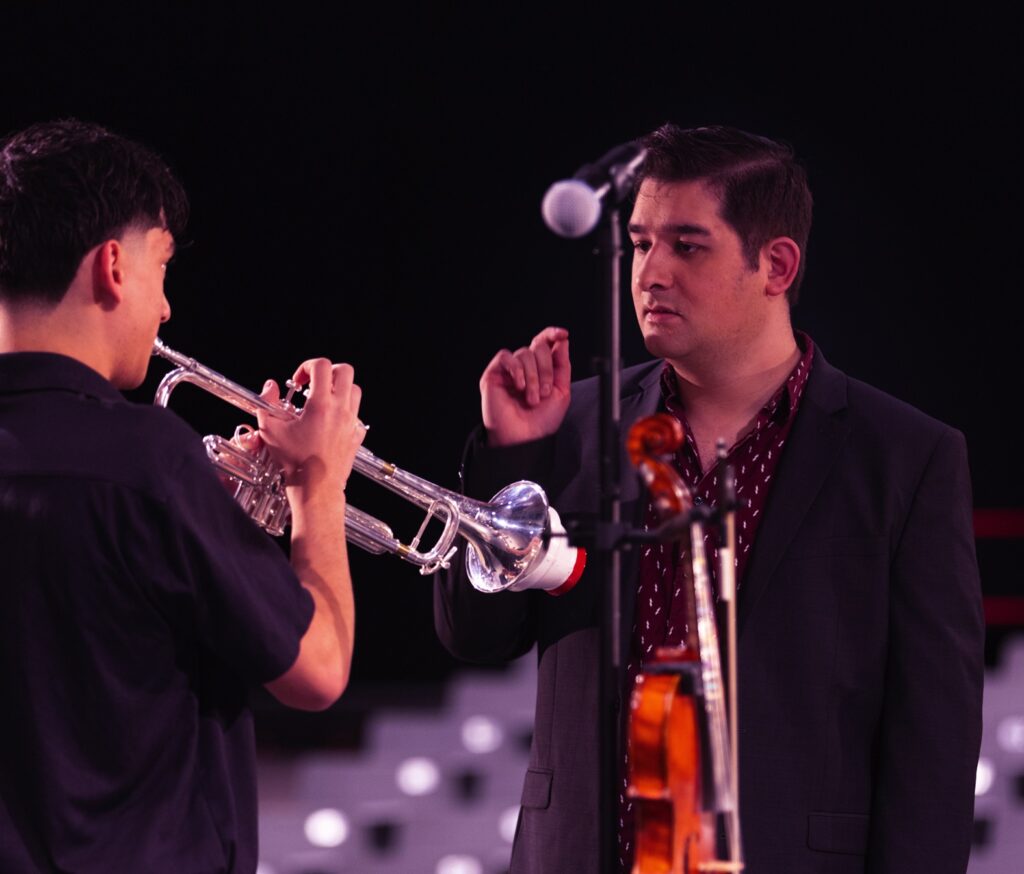Tagged Under:
Work Smarter Especially When You’re Burned Out
Don’t get bogged down with busy, unnecessary tasks. Streamline your routines and focus on what matters to be present for your students.
I caught myself thinking: I guess I’ll just stay late again — as I stared down a to-do list that had somehow grown overnight. Paperwork, chair tests, emails, locker assignments, some random form for something I didn’t understand … and it was only Monday. The weeds in my lawn and my to-do list seem to grow at the same rate. Adding insult to injury, my neighbors are starting to get upset about my lawn because I’m always at work.
The absurd part? Half of the tasks on the list didn’t need to be done right now. Or ever, if I’m being honest. I had fallen into the trap of doing everything just because it landed on my desk.
That’s how burnout sneaks up on you. It’s rarely the big stuff. It’s actually the small, pointless tasks that we convince ourselves are urgent.
Eventually, I asked myself: What if I just … didn’t?
Turns out, a lot of it didn’t matter. And the things that did matter? Well, they improved when I wasn’t drowning.
Here’s how I learned to work smarter, not harder — and definitely not later.

Streamline Your Routines Ruthlessly
Teachers love routines. Until they don’t. At some point, I realized my “systems” were just elaborate ways of wasting my time. For example:
- Monday morning inventory checks — no one noticed when I stopped doing them.
- Color-coded seating charts updated weekly — I was the only person who cared about this.
- Hand-written practice logs — half were forged, the other half didn’t improve anyone’s playing. The only good thing that came out of these logs was that they helped form a bond between parent and student as they collectively tried to pull one over on the teacher.
I finally sat down and asked myself: Do these things actually help my students? The answer was embarrassingly clear: Not really.
So, I started cutting.
Now my attendance system is a sticky note. My announcements live on a whiteboard. My lesson planning is a bullet list, not a Stephen King novel. I check instruments when something sounds weird, not on a schedule designed by a past version of me who clearly hated free time.
The mental load lightened immediately.
Your students don’t need elaborate — they need consistency. Your admin doesn’t need pretty — they need verification of submissions. Your mental health doesn’t need extra — it needs protection.
So, stop adding steps where none are needed. Yes, this includes the binder covers you downloaded off Pinterest during a planning spiral and updating your bulletin boards every season. Nobody notices your bulletin board but you, so let it go.
There’s nothing wrong with being “extra” as long as you have extra time. Chances are if you’re reading this, you don’t.

Focus on What Moves Your Students Forward
You’re never going to finish all the things. That’s not cynicism; it’s math. One of my worst habits early in my career was mistaking “done” for “effective.” I’d leave school with every task checked off but then realized that I hadn’t taught anything well that day.
So, I made a new checklist:
- Do students sound better?
- Do students understand what we’re doing?
- Are students more confident walking out than walking in?
If the boxes were checked, great. If not, I knew where I had to put my energy.
Here’s a real example: Last spring, I planned an intricate rhythm reading unit with packets and stations and assessments. Halfway through, I realized my kids just needed more time counting and clapping together. I ditched the packets, grabbed a whiteboard and we spent two weeks doing rhythm drills as a class. Guess what? They improved faster. No paperwork required.
Sometimes the simplest thing is the most effective — but it’s hard to see that when you’re buried under “busy.”

Stop Confusing Busy with Effective
I used to wear “busy” like a badge. Running from task to task, juggling paperwork, answering emails at night — all proof that I was working hard. Thank goodness, I kept an extra stick of deodorant at school.
The problem? My students weren’t learning faster. My concerts weren’t improving. I was just tired.
I remember one particularly brutal week where I stayed late at school every day, thinking I was being a hero. By Friday, I had a clean office, updated spreadsheets and zero energy for rehearsal. That’s when it hit me: Busy isn’t helping anyone if I’m too drained to teach.
Now, I protect my time like it’s oxygen.
- I don’t answer emails after school unless it’s urgent (and I’m slowly moving toward not even checking email).
- I batch my admin work so it doesn’t bleed into teaching time.
- I say no to extra duties unless there’s a really good reason. (Hint: “It’s tradition” is not a good reason.)
Here’s the difference: I leave work with energy left for my family, my hobbies and occasionally just sitting on the couch doing nothing. That makes me a better teacher the next day.
Busy isn’t the goal. Better is. (And better usually looks way less impressive on paper.)
Also, just to be clear — you don’t get extra points for exhaustion. You don’t get a gold star for being the last car in the parking lot. You get bags under your eyes and you get burned out. That’s it.

Automate What You Can, Delegate What You Should
I fought this one for years. I thought using templates made me lazy. I thought asking for help made me look incompetent. I thought doing everything myself proved I was dedicated. Spoiler: None of that is true.
Here’s what is true:
- Templates save you time and sanity.
- Delegating helps others grow.
- Automation frees your brain for actual teaching.
Some real-life examples from my classroom:
- My weekly rehearsal plan is a Google Doc I copy and paste from last year, with minor edits.
- My student leaders handle locker assignments and uniform checkouts.
- I use A.I. when appropriate.
None of this makes me a bad teacher. It makes me a teacher with fewer headaches.
The things I used to spend hours fussing over? They still get done. Just faster, and not always by me.
Automation isn’t laziness. It’s survival.
Delegation isn’t weakness. It’s how you make it to June.
And if you’re worried someone will think you’re cutting corners, remember that the people who matter (your students, your family, your future self) will thank you.

Let Go of Things That Don’t Matter Anymore
Some things were important once. Some things were never important but felt urgent. Either way, you don’t have to keep carrying them.
I admit that this was hard for me. I’m a sentimental person. I hold onto traditions, habits and ideas long after they’ve stopped serving me. I kept running sectionals that no one showed up for. I kept assigning theory packets no one learned from. I kept worrying about locker decorations.
Eventually, it hit me: Just because I’ve always done it doesn’t mean I have to keep doing it.
Now, I give myself permission to retire things that aren’t working.
- If a routine feels forced, it’s not helping.
- If an assignment doesn’t lead to growth, it’s not worth assigning.
- If an event drains more energy than it gives back, it’s time to let it go.
Your students won’t remember how busy you looked. They’ll remember how present you were.
Here’s a small but real example: I used to stress over having perfectly typed concert programs, formatted within an inch of their lives. One year, the copier broke the day before the concert. I slapped together something simple, ran it on colored paper, and moved on. Not a single parent complained. The kids played great. That’s what people noticed.
Letting go of the unnecessary doesn’t lower your standards. It raises your focus.

You’re Allowed to Work Differently Now
If you’re feeling burned out, it’s not because you’re weak. It’s because teaching asks too much — and gives you too little time to figure it out.
Working smarter isn’t about productivity hacks. It’s about protecting your energy for what really matters: helping kids, making music, staying human.
You’re allowed to work differently now. Honestly, you probably have to. It doesn’t make you less of a teacher. It just makes you a teacher who lasts.
And trust me — the kids need teachers who last.















